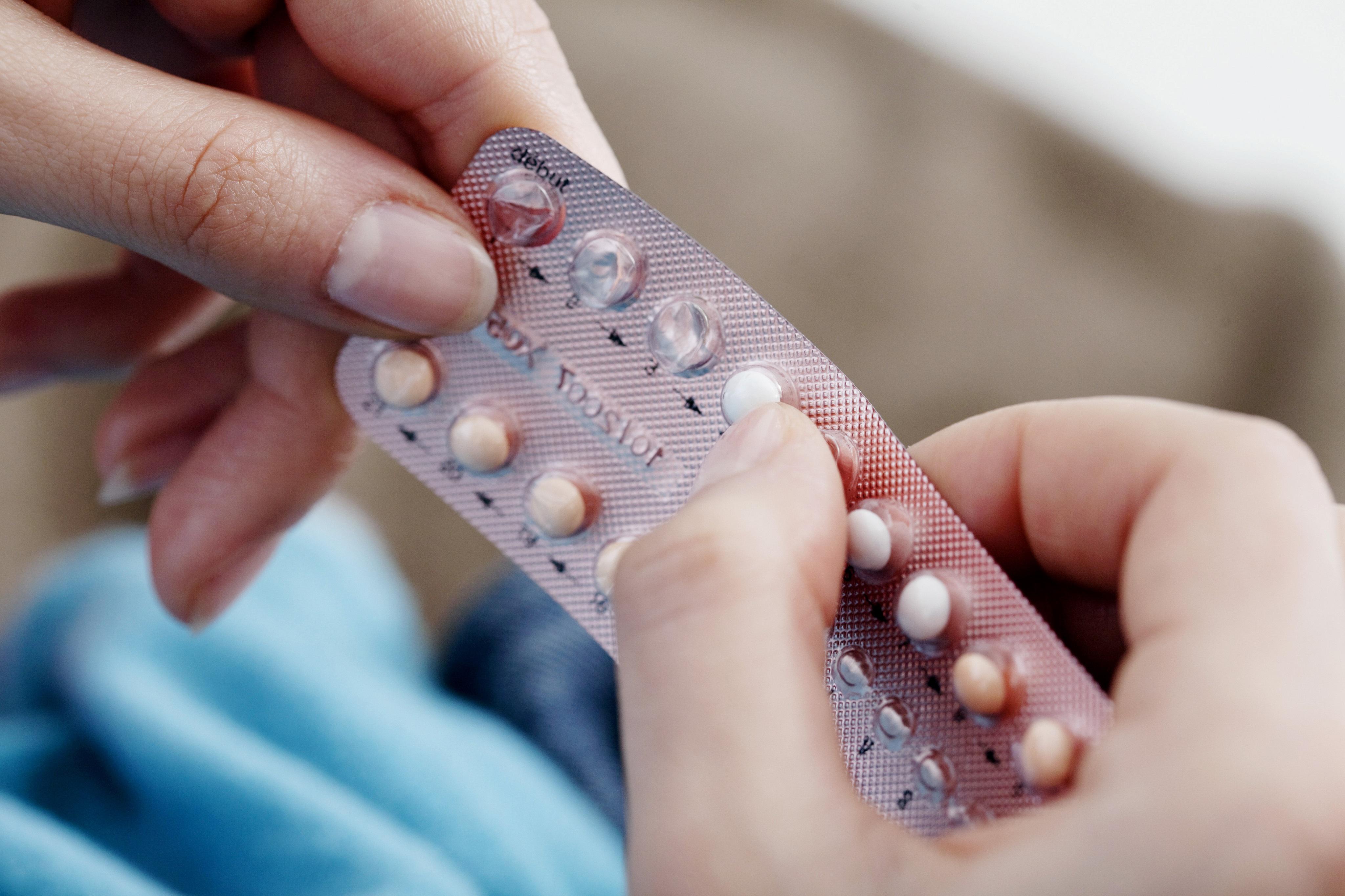
Approximately 6.5 million people in the United States are affected by endometriosis, a painful condition where the tissue similar to the uterine lining grows outside the uterus.
Gynecologists often recommend hormonal birth control as the first line of treatment for this disease.
Bella, a 21-year-old from New York, has been on birth control since she was 13 to manage the debilitating symptoms of endometriosis, including painful and heavy periods, gastrointestinal issues, and intense fatigue.
“I know it seems young to start birth control, but I’ve experienced these symptoms since my first period at 12,” said Bella, who preferred to be identified by her first name for privacy reasons.
“Birth control transformed my life,” she told HuffPost. “Before the pill, my period was so heavy and painful that I missed school, sports, extracurriculars, and social activities.”
“I wouldn’t be able to live independently, attend college, work a job, or have meaningful relationships without it. It alleviates my symptoms and enables me to function.”
Given her reliance on the pill, Bella was dismayed when Senate Republicans blocked the Right to Contraception Act, a bill designed to ensure federal access to contraception.
“Though I primarily take it for endometriosis, women have every right to use it to prevent pregnancy,” she said. “It shouldn’t matter why someone takes it, and politicians should not interfere.”
“If right-wing politicians are opposed to abortions, it makes no sense to restrict access to birth control or Plan B,” Bella added. “They’re being hypocritical.”
Democrats introduced the bill out of concern that reproductive rights could be further threatened after the U.S. Supreme Court overturned the national right to an abortion two years ago. Recently, former President Donald Trump hinted at restricting contraception access if re-elected, though he later retracted his statement.
On Wednesday, the Right to Contraception Act vote was 51-39, falling short of the 60 votes needed to overcome a filibuster and advance the bill.
Republicans argued that contraception access is already protected by the U.S. Supreme Court. However, Democrats pointed out that abortion access was also protected before Roe v. Wade was overturned in June 2022. Justice Clarence Thomas suggested that the court should reconsider other rights, including contraception access.
Often overlooked in the contraceptive debate is the fact that many people use hormonal birth control for non-contraceptive reasons. Many women, as well as gender-fluid, nonbinary, and transgender individuals, rely on contraceptive care for various health benefits.
A 2011 study by the Guttmacher Institute found that 14% of women using hormonal birth control—about 1.5 million women—used it solely for non-contraceptive reasons. Additionally, 58% of users took the pill at least partially for other health purposes.
Among teenagers aged 15 to 19, about one-third used the pill for reasons other than preventing pregnancy.
Katie Ann, a 36-year-old from North Carolina, began taking the pill at 16. “Without the pill, I have debilitating cramps,” she told HuffPost. “I once passed out in a Macy’s, and that’s when my mom took me to the doctor.”
Off birth control for a year and a half, Katie Ann had to take eight sick days from work. “I’d wake up at 4 a.m. in pain and still couldn’t get off the floor by 6 a.m. Birth control truly changed my life,” she said.
Dr. Allison K. Rodgers, an OB-GYN and specialist at Fertility Centers of Illinois, noted that severe periods often lead people to discuss birth control as a treatment option. For fibroids and endometriosis, hormonal birth control is preferred due to the risks associated with surgery.
“Heavier periods can cause anemia, and hormones can lighten cycles to prevent it,” she said.
Elise, a 33-year-old from Texas, started birth control at 16 due to heavy periods, long before she was sexually active. “I once passed out while walking in a park, and bystanders thought I was on drugs. It was unsafe,” she said.
Initially hesitant due to her faith, Elise eventually found that birth control improved her health and quality of life. “It fixed my anemia, giving me more energy,” she said. “Now, I use two types of hormonal birth control.”
Elise observed that many people don’t realize the health benefits of hormonal birth control: “It’s isolating and scary when people shame birth control users out of ignorance.”
Years ago, Cheryl, 54, from New Jersey, was prescribed birth control after being diagnosed with bilateral endometrial ovarian cysts. “I had two options: invasive surgery or a daily pill. Birth control was an easy choice,” she said.
Dr. Rodgers noted that birth control is also used to manage polycystic ovary syndrome and reduce ovarian cancer risk. “For many high-risk patients, birth control is a vital long-term treatment,” she said.
Those undergoing fertility treatments are also prescribed birth control to regulate cycles before procedures like IVF.
“Reproductive health care is about much more than just preventing pregnancy,” Rodgers said.
For severe period pain, the only alternative is over-the-counter anti-inflammatory medication, which is generally less effective than hormonal birth control, according to Dr. Karen Tang, a gynecologist and author.
Tang expressed concern about lawmakers interfering with contraceptive and abortion care. “Imagine if lawmakers decided on access to chemotherapy, diabetes medication, or surgery,” she said.
“It’s unsettling when politicians without medical expertise make medical decisions for others,” Tang added.


